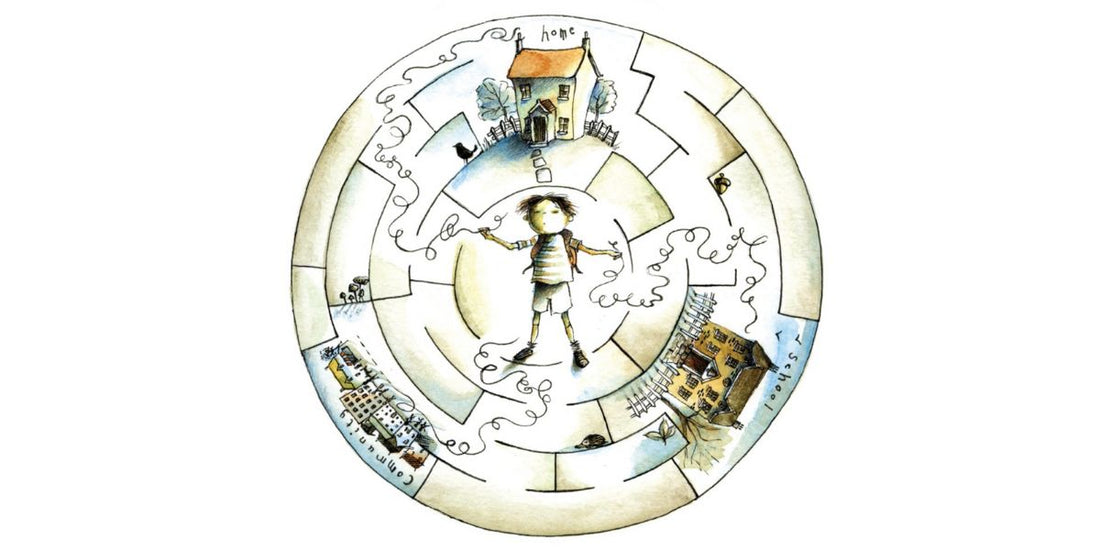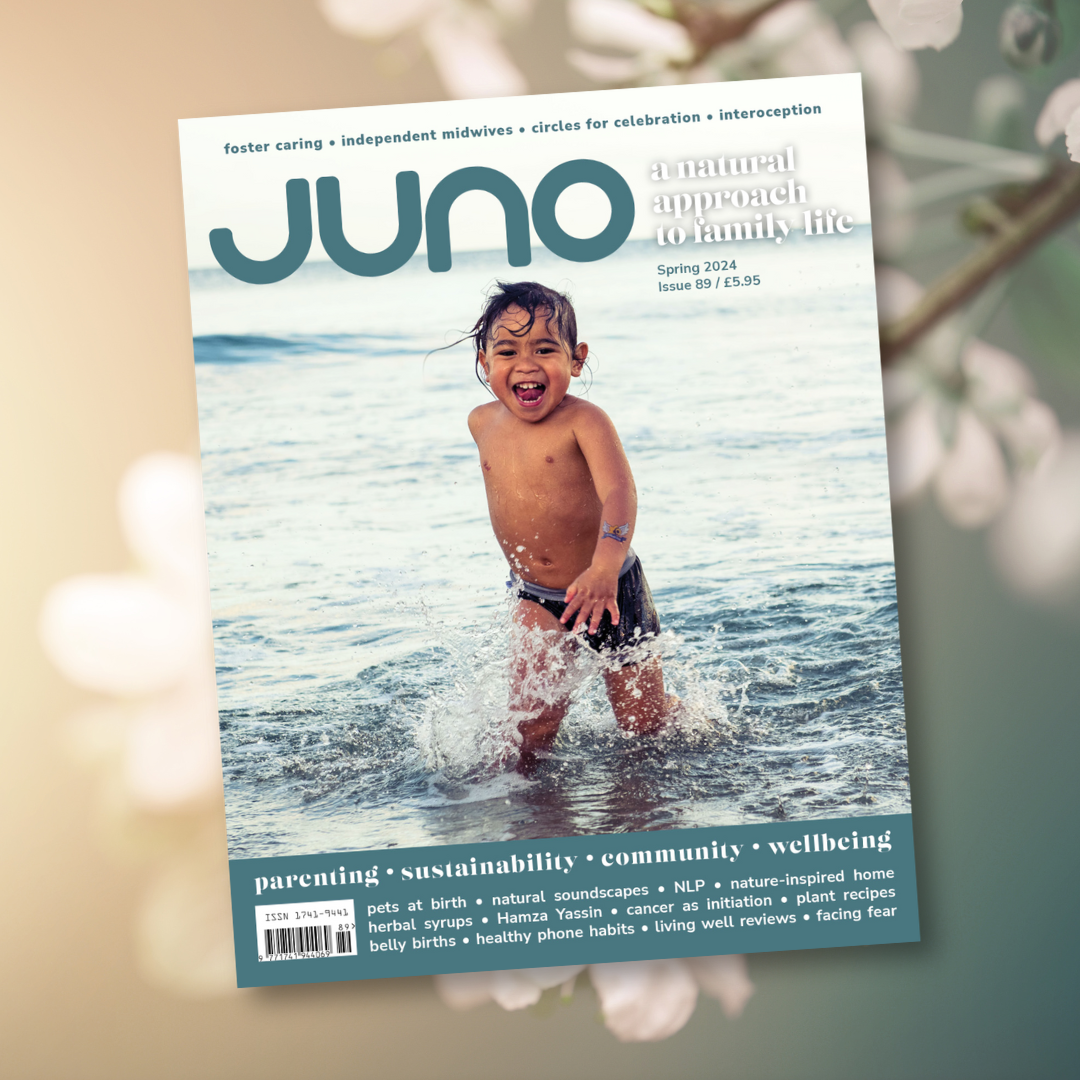I have spent seven years looking for the school of my dreams. Over the last ten years there has been a surge of small schools in the UK that aim to educate the whole child with generosity and reverence for the miracle that they are. Many of us have thought deeply about the purpose of education and have taken the courageous step of choosing or even creating a school outside the mainstream state or public system. Others are seeking fulfilment of educational ideals through home schooling their children.
But I believe that a large number of these well-intentioned schools and parents are falling short of their mission because they are not connecting with their local communities or building their own altruistic community with a shared sense of purpose and beliefs about education. They are also taking some of the energy for progression away from the state system and are not contributing to the debate on education in the UK and our society at large.
My children and I have been lucky enough to experience home education and four different schools – two state primary schools, a small school and a private preparatory school. We have also been involved in Steiner playgroups and Montessori environments. It’s been a terrific and exciting search. I have visited over 50 schools in the UK, and I now realise that what I’ve been looking for is not a school, but a community; not a methodology, but inspired, attuned and generous teachers and community members; not successful results, but happy children.
I need an educational community where teachers are also receiving the loving support they need. I need a community that is not judging young people through constant formal testing, rewards, grades and praise. I would like a school that appreciates the ‘how’ of learning and the multiplicity of intelligences, where teachers are interested in creating an environment that best stimulates thought rather than an environment that best supports teaching. I would like a school that actively connects the thread between subjects; that is itself open to learning. A school with a strong culture that I can support at home. A school that appreciates stillness and wellbeing. A school that understands happiness. I need a school with a big heart and an open mind.
Jean Piaget, one of our greatest thinkers on education, suggested that the principal goal of education is to create people who are capable of doing new things. Today, as we head closer towards emptying our Earth’s natural resources, the need to create a future generation that can ‘do it differently’ is a moral, social and economic imperative. How does this relate to the real world of schools and education? I am greatly excited by Constructivism, which John Abbott describes as the process of developing “ever deeper understanding by constantly taking new ideas and relating them to what [you] already know”. This process is the breeding ground for innovation and genius. Connecting many pieces of information from an array of subjects to make a new story or explain an old one is a joyous process, which some schools are now promoting. This is a ‘whole’ and useful education.
Increasing intelligence is the pursuit of every generation. However, I believe that our current system is subtly educating our children to be compliant, hardworking, materialistic employees whose intelligence is measured in relation to doing the specific and special, or even expert, job that is offered. If education is about enabling children to be active, creative, intelligence-seeking, skilled members of a community, then the task for a school is to give children the time and energy they need to be critical, inventive and generous thinkers and doers. Then children can build the confidence and trust to do work that excites and ignites their own unique flow whilst contributing to society. This is also a recipe for happiness!
But a school by itself cannot fulfil the learning potential of our children. John Abbott refers to the solid, well-balanced three-legged stool of home, school and community, fostering “emotional growth, intellectual growth and inspirational ideas”. How are you, your school and your community communicating with each other and society at large? How does your social community fit with your vision? Do your children feel they are part of a community that cares and shares? Are they building trust, or suspicion? How many adults are telling them inspiring, hopeful stories or teaching them transferable real-life skills?
According to much of the research on happiness in the UK, children are probably building suspicion of their communities. Our education model conflicts with our desire for collaboration and human interaction and the real benefits of learning through self-expression. Teenagers desperately want to be part of a stimulating and invigorating community, a group of people of different ages and numerous skills. They are hungry for new ideas that will challenge them physically and mentally. They want to understand themselves in reference to their place in society; they want to find out who they are and what fires their flow. How can they do this in a school that is not connected to any natural environment, or a school that predominantly requires silence for teaching? In schools we have an opportunity to nurture independent, self-motivated, deep-thinking and hardworking young people. Many schools seem to achieve this aim, but if we take a closer look we will see that these young people are addicted to ‘making the grade’ and doing the ‘right’ thing, unable to take risks because they are afraid of ‘failure’.
How can education contribute to the happiness of our children? Happiness, says Robert Holden, is built around self-worth and self-belief – when we are in a state of joy or when we are without our insecurities. When we are being infinitely kind to ourselves and those around us, we are happy. If happiness is linked to our sense of self, then school should be a place that enables children to find their purpose. The key task for teachers is to provide an environment where self-enquiry is at the heart of the curriculum.
But our happiness is also about the happiness of our community. I believe that education and schools can make a massive contribution to the happiness and health of our children and the communities of the future. If we as parents united and communicated with teachers, together we could transform not just education in this country but also the future happiness of all our children.
____
Skeena Rathor is a jack of a few trades and master of none. She is married to Andy the Maths Teacher and has three girls, Hana, Zahra, Miri. Skeena has moved seven times in 11 years and has completed seven different training programmes in that time.
Illustration by Veronica Petrie – veronicapetrie.com
____
Further reading
- Overschooled But Undereducated: How the Crisis in Education is Jeopardizing Our Adolescents by John Abbott, with Heather MacTaggart, Network Continuum Education Be Happy by Robert Holden, Hay House UK
- Leading Minds: An Anatomy of Leadership by Howard Gardner, HarperCollins
- Too Much, Too Soon? Early Learning and the Erosion of Childhood edited by Richard House, Hawthorn Press
- born-to-learn.org
- openeyecampaign.wordpress.com
____
First published in issue 29 of JUNO. Accurate at the time this issue went to print.



